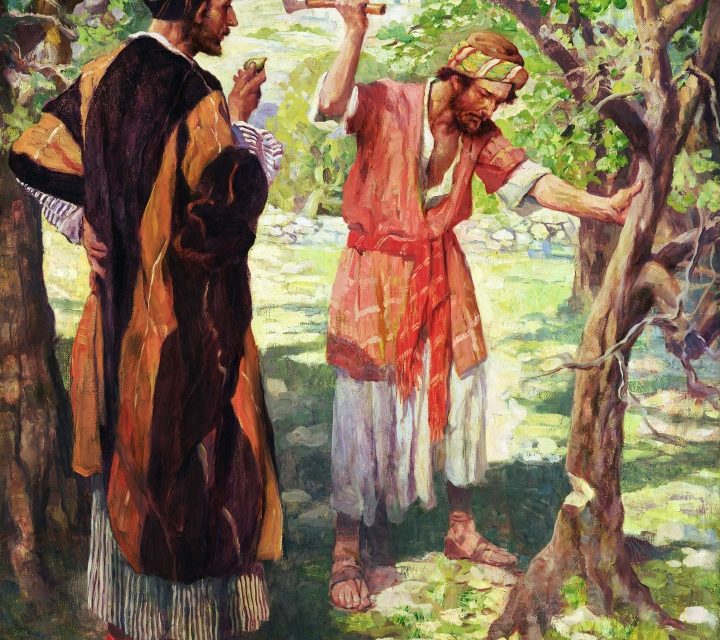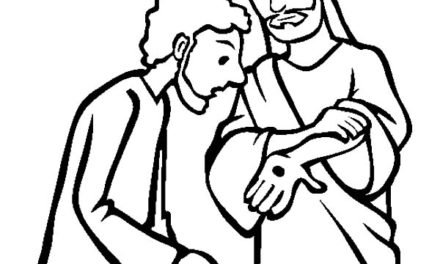Jesus’ short parable about a cursed fig tree speaks of imminent judgment and a call for repentance. The parable was Jesus’ way of saying that the whole nation had become spiritually barren and unfruitful before the Lord (Hosea 9:10; Jer 8:13). Using the words of John Wesley, the whole nation had ‘the form of religion without the power.’ They had and knew the right words, theology and philosophy to say, but their hearts were far from God and His Words. The parable of the cursed fig tree offers both good news and bad news. The good news is that, God is a God of second chances, He so loved the world and willing to forgive whoever believes in Him. The bad news is that even God’s patient and mercy has its limits (Jn 3:16). Lent warns us not to be lulled into a false sense of security thereby confusing God’s patience with laxness on His part.
Jesus spoke in parables to His disciples and His followers to reveal hidden mysteries of the kingdom of heaven and especially to those who “seeing they do not see, and hearing they do not hear, nor do they understand” (Matt 13:13). In Jesus’ parables we see stubborn hearts riddled with pride, people feeling their actions, deeds, and the states of their hearts were righteous despite God pointing out their sins. This parable of a barren fig tree is meant to teach us a vital truth and reality about God’s judgment. There is no place for indecision in our relationship with Jesus. We have to make a decision; live for ourselves or repent in order to live in the vine in Christ.
The parable of the cursed fig tree offers other insights beyond the symbolism for the nation of Israel. The vineyard owner represents a fruitful God Who also expect to see fruit on His trees. The vineyard keeper is Jesus who cares for the trees with the living water in order to bring the trees to their peak of fruitfulness. The parable is placed next to the story of cleansing the temple in Jerusalem. Beyond human mixed motives and self-seeking attitudes of the temple leaders, the temple was a holy place, built for holy purposes. Just as it was easy then, and it is easy now, to get off track, the temple leaders, now money lenders had turned the temple into a den of thieves. It is very easy to forget our mission, purpose and then rely on ourselves and missed the opportunity to fruitfully serve. God will always turn our tables if we ever lose sight of our mission and purpose just as He did with the shrewd marketers, the temple leaders, the profiteers who were killing off the pilgrims who came to worship (Matt 21:12-17).
The parable of the cursed fig tree calls us to repentance in order to avoid God’s judgment. Repentance is not a helpful or fashionable word today but it is the prerequisite for a redirection and connection to a fruit-bearing trees and eternal life in God. Repentance as a means of transformation calls us to stop doing unfruitful things or going through a direction of self-destruction. The parable of the cursed fig tree warns us that Jesus do not tolerate false appearances, the appearance to be busy but guilty; appearance of fruitfulness, but full of deception and compromise. Falseness is the essence of hypocrisy and the cursed fig tree is a good description. Indeed, the vineyard owner is disappointed at the fruitless tree just as He is disappointed at fruitless Christians, churches and leadership today.
The parable of the cursed fig tree reveals a fundamental truth and reality about God and His judgment. God, the Vineyard Owner provided a way of escape through the His Son, Jesus, the Vineyard Keeper for the fig tree to avoid being “cut down.” The way of God’s mercy and compassion is linked to the moral statement of the parable, “unless you repent, you will likewise perish” (Lk 13:5). Repentance helps to stay rooted in Jesus Christ. The lesson for us personally and corporately is that ‘borrowed time is not permanent,’ judgment is near and true, hence prophet Isaiah wrote, “Seek the LORD while he may be found; call on him while he is near. Let the wicked forsake his way and the evil man his thoughts. Let him turn to the LORD, and he will have mercy on him, and to our God, for he will freely pardon” (Is 55:6-7). Refusal to repent is to wither, decline, die and perish.
My dear friends, life’s fragility gives it urgency. It is Lenten season, are you a fruitful fig tree or fruitless fig tree? Lent calls us to reflect on the difference between leaves and fruit bearing. The problem in the church today is not the problem of a fig tree without leaves of theology, leadership, committees, fresh expressions and technology. The problem of the church is lack of fruit after many years but decline and divisions. God is looking for fruits in our lives, churches and nations and not leaves of merely sitting in the church buildings, offices, and venues for activities, meetings, conferences, and debates. Are you in relationship with the Vineyard Owner, and the Vineyard Keeper in order to drink from the fountain of living water for fruitfulness? Remember ‘everyone is just one heartbeat away from eternity and the judgment of God because we all have an appointment with death’ (Heb 9:27). Be prepare, repent today, Jesus is coming at an hour you do not expect (Matt 24:44).











Recent Comments